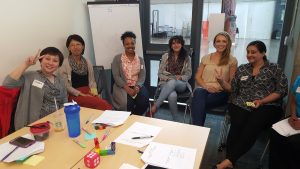 IGS provides conflict resolution, problem-solving processes and mediation services to assist both managers and staff, individuals and groups. Our approach to conflict resolution and mediation combines both the Interest Based Problem Solving and Transformative models of mediation and conflict resolution.
IGS provides conflict resolution, problem-solving processes and mediation services to assist both managers and staff, individuals and groups. Our approach to conflict resolution and mediation combines both the Interest Based Problem Solving and Transformative models of mediation and conflict resolution.
Our Approach
Using Interest Based Problem Solving, IGS assists stakeholders to find joint solutions that meet mutual needs. This approach increases the potential of achieving both maximum joint satisfaction and lasting results.
IGS also applies the Transformative model to conflict situations. This process strengthens stakeholder capacity for experiencing and expressing concerns as well as demonstrating consideration for others. Doing so leads the way for mutual collaboration in defining solutions that will work now and in the future. This process increases the probability of restoring the future relationship between the stakeholders—a must for creating a harmonious work environment and building effective teams.
“Working with Shirlene has made our organization much more productive and cohesive. She has great insight into personalities as well as issues, and goals, and all is accomplished with a marvelous sense of humor.”
Gail Robinson, Past President ACHS
Conflict Resolution Sample Project
Phase I: Assessment
Phase II: Conduct Meetings
Initial Agreements
Conduct Conflict Resolution MeetingsIGS conducts a series of facilitated meetings with key parties. Services may include:
Phase III: EvaluationWhether it is a large group process or mediation between two individuals, at the end of the process, IGS meets with the project sponsor to evaluate the outcome of the conflict resolution process and to identify next steps. Meeting notes and working agreements (approved for disclosure) are shared at this meeting. |
Past Successes
IGS has provided services to many organizations including Portland Development Commission, Portland Community College, City of Portland, Clackamas County, Garden Home Community Library, Children’s Nursing Specialties, Tillamook County, Oregon Department of Transportation, Oregon Commission on Children and Families and The Oregon Advocacy Commission.
